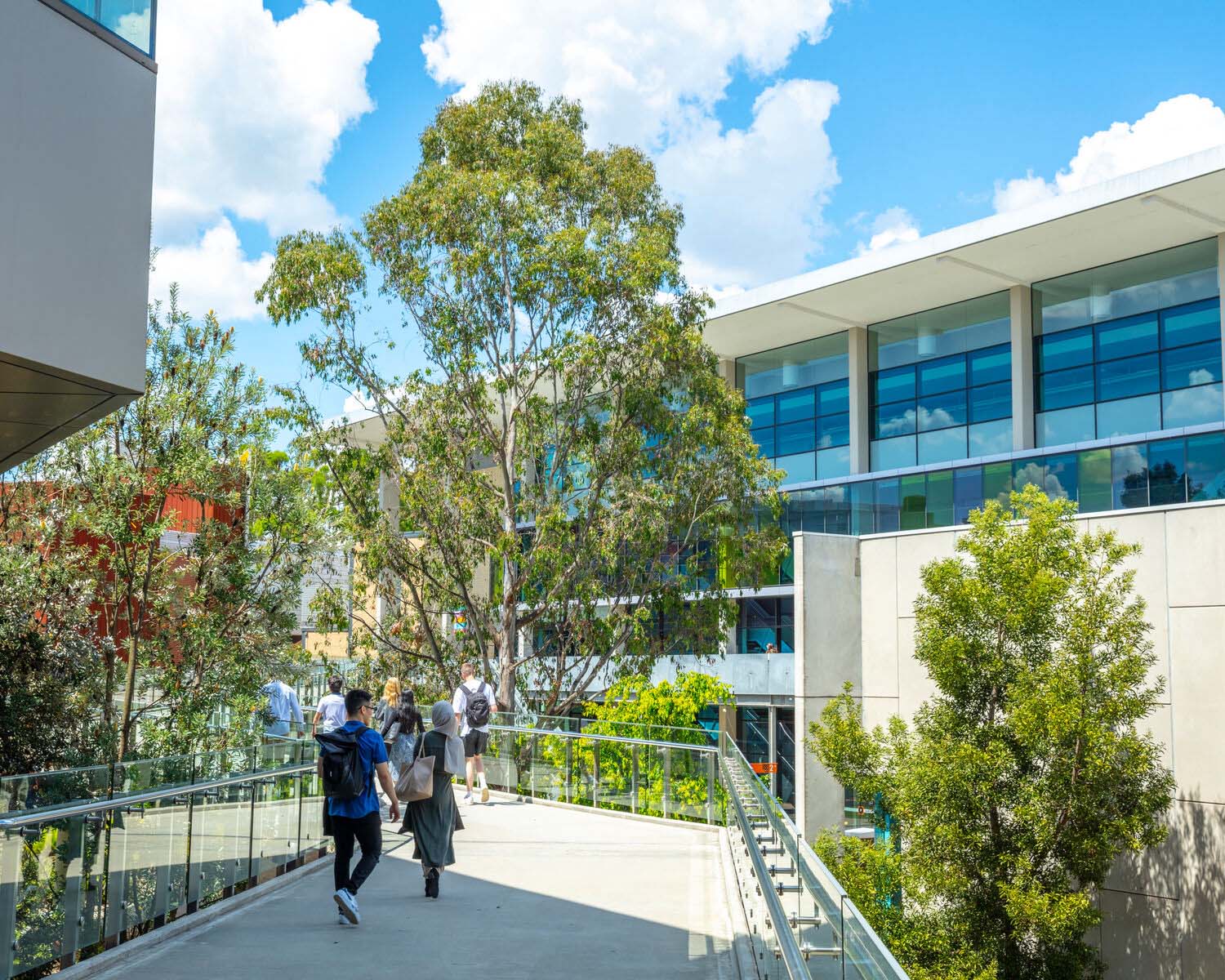Refining our CN2025 Commitment
Deakin news
Deakin’s commitment to advancing sustainability through quality education, sustainable campus operations and research is non-negotiable – it is part of our core social contract.
We have said many times that the changing climate is one of the most urgent challenges facing modern society. For this reason, in 2019, we established our sustainability goals, which included a commitment to reach carbon neutrality by 2030.
In 2021 we accelerated that target by five years; with a focus on our direct emissions (scope 1 and 2), and a growing awareness of indirect supply chain emissions (scope 3) in our path to achieving carbon neutrality.
A little more about the definition of each Scope is below:
Scope 1
Direct emissions that an organisation creates, through the consumption or combustion of fossil fuels in assets that are owned or controlled by an organisation. At Deakin, this includes the combustion of natural gas to heat our buildings, or fossil fuels used in our vehicles.
Scope 2
Emissions indirectly associated with Deakin, as we source these from a secondary energy provider. Scope 2 emissions come from the consumption of electricity.
Scope 3
Relate to all other emissions within Deakin’s value chain – those associated with the products, services, and processes we rely on to deliver our work – that don’t fall under scopes 1 or 2.
Through significant and strategic reduction efforts, we’re proud to be on-track to achieve our Scope 1 and 2 emissions targets by 2025.
In the past 18 months, our understanding of the scale and complexity of Scope 3 targets has changed significantly, and we are turning our focus towards developing the profile of our Scope 3 emissions and a new strategic plan to tackle these.
Significantly, Scope 3 targets rely on the behaviour of layers in our value chain, many of which are not directly in our control, and are external or third parties.
As a result, there is a need for Deakin to adjust its carbon commitment, with an updated approach to carbon neutrality by 2025 now defined as the mitigation of all Scope 1 and 2 emissions by the end of 2025.
Our dedication and sense of responsibility to emissions mitigation and sustainability is unchanged.
We remain steadfast in our approach to prioritising programs and initiatives that actively reduce energy consumption and unwavering in our social obligation to enabling a sustainable world, as we help to combat this most urgent of issues.
What are Scopes and why are they important?
In order to reduce emissions, we need to understand how they’re measured. The three scopes allow organisations like Deakin to categorise the types of emissions they create as part of their operations and more broadly through their supply chain.
They are defined as:
- Scope 1 - direct emissions that an organisation creates, through the consumption or combustion of fossil fuels in assets that are owned or controlled by an organisation. At Deakin, this includes the combustion of natural gas to heat our buildings, or fossil fuels used in our vehicles.
- Scope 2 – are emissions indirectly associated with Deakin, as we source these from a secondary energy provider. Scope 2 emissions come from the consumption of electricity.
- Scope 3 - relate to all other emissions within Deakin’s value chain – those associated with the products, services, and processes we rely on to deliver our work – that don’t fall under scopes 1 or 2.
The Greenhouse Gas Protocol, the global standard for managing and measuring emissions, states there are 15 separate categories of emissions that may apply to an organisation, depending on its activities. For Deakin, these include emissions associated with the construction of our facilities, emissions from our staff travelling (such as through airline travel), or emissions associated with our investments.
Why is Deakin adjusting its commitment?
Deakin is adjusting its commitment due to enhanced understanding and improved estimations of our total emissions, including Scope 3 emissions, which were not fully accounted for when the original commitment was made. This adjustment allows us to more accurately address all emission sources and ensures a more comprehensive and realistic approach to achieving our sustainability aspirations.
What are Deakin’s revised commitments and timelines?
Deakin has committed to mitigating Scope 1 and 2 emissions by the end of 2025.
To achieve this, we will:
- Implement projects to reduce on-campus emissions
- Purchase 100% renewable electricity
- Utilise carbon offsets where necessary
With scope 3 now identified as a significant challenge, Deakin will be undertaking a comprehensive strategy to determine a pathway to full decarbonisation.
What action has Deakin taken in its sustainability and emissions reduction efforts?
As part of our longstanding commitment to sustainability, we’ve made significant progress toward the mitigation of Scope 1 and 2 emissions including but not limited to:
- The development and activation of our 7.6 MW Waurn Ponds solar energy farm, paired with 1MW/2MWh battery.
- Investment in large scale renewable electricity, by participating in the Melbourne Renewable Energy Project 2 (MREP2) buying group.
- Expanding renewable electricity investment to meet 100% of Deakin’s Australian based electricity requirements.
- Establishing pilot projects to transition space heating towards more efficient electric heat pump technology at both our Waurn Ponds and Warrnambool campuses in favour of gas fuelled boilers.
- Transitioned parts of our low efficiency lighting to modern LED alternatives across all four campuses.
- Developed and implemented a flagship Integrated Water Management program at our Waurn Ponds campus to consider the water cycle as a holistic system and address significant water-related challenges in and around our campus.
- Development of a University-wide Biodiversity Strategy and commencement of restoration planning opportunities using a focal-species approach.
- Our carbon neutral hydrogen research facility at Warrnambool campus, Hycel.

